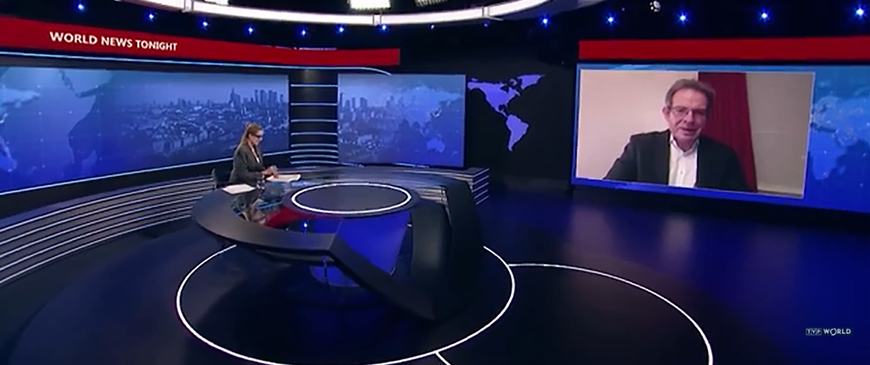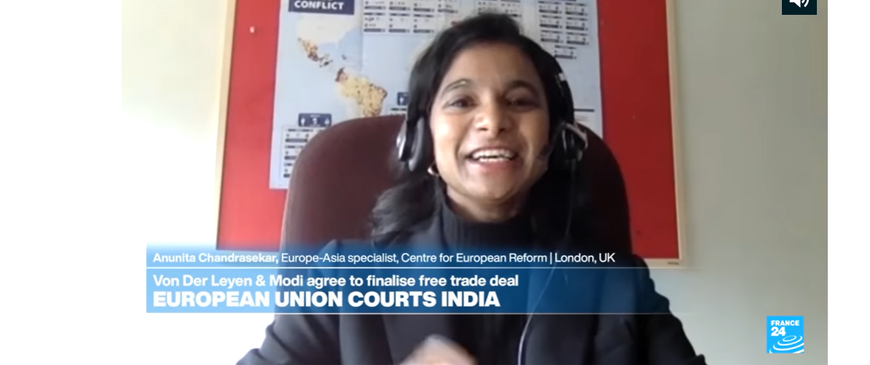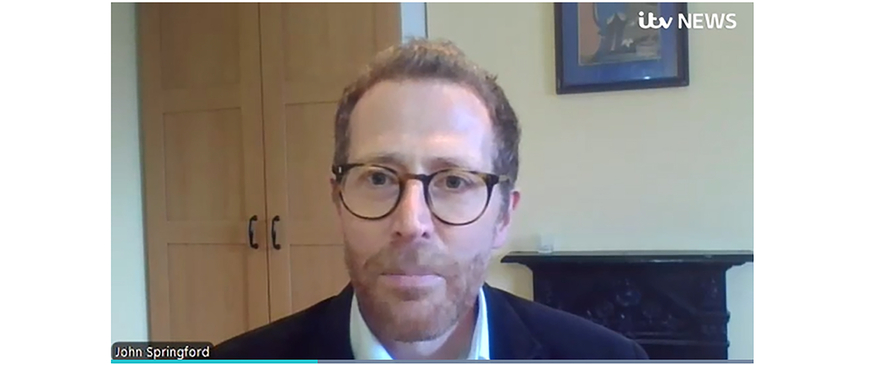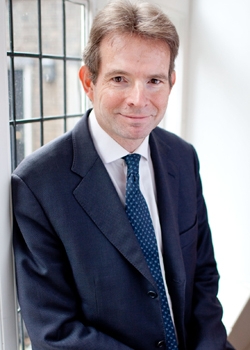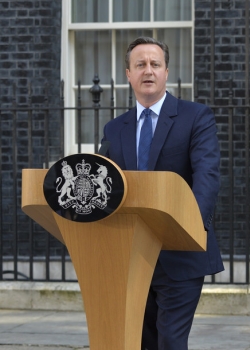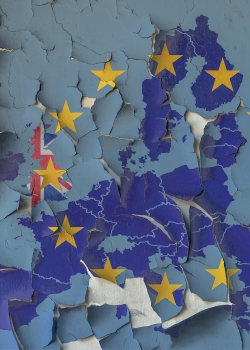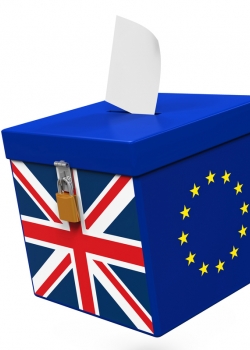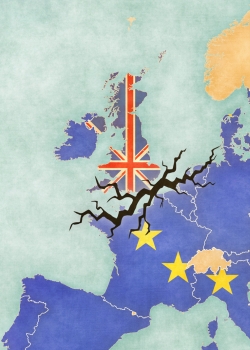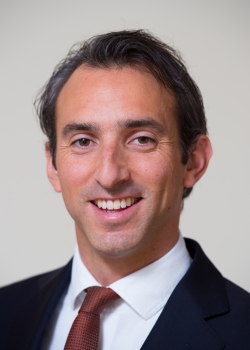Press
Brexit: Haunted Europe
26 June 2016
Financial Times
"From now on, the narrative will be one of disintegration, not integration," says Charles Grant of the Centre for European Reform, a think-tank. "That doesn’t mean that the EU will fall apart, or even that another country will leave, which is highly unlikely in the foreseeable future. But the centrist politicians who run nearly every EU member-state will henceforth be on the defensive against the populist forces who oppose them and the EU."
Brexit is a rejection of globalisation
26 June 2016
The Guardian
That dream is now over. As Charles Grant, the director of the Centre for European Reform think-tank put it: "Brexit is a momentous event in the history of Europe and from now on the narrative will be one of disintegration not integration."
Parliament must decide what Brexit means in the interests of the whole Kingdom
26 June 2016
The Telegraph
"Whatever Juncker and a few federalist diehards in Brussels may think, most EU governments have woken up to the reality that the more Europe the push, the more euroscepticism they get," said Charles Grant from the Centre for European Reform. "The knee-jerk reaction of the Commission is always to try to seize on any crisis to try to push for more Europe and closer integration, but they can dream on this time," he said.
Dossier: 'Brexit'. Apuesta sin ganador
26 June 2016
El Universal
“Nada de lo que se haga a partir de ahora será bueno, ni para Europa, ni para Gran Bretaña, porque el Brexit fue una apuesta al retroceso”, sostiene Camino Mortera, analista del Centre for European Reform.
BBC Westminster Hour: The UK after the referendum
26 June 2016
Speaking on the BBC's Westminster Hour (from 48.02 mins) Charles Grant observed that the EU will be forced to undertake major reforms in the wake of Brexit, including on the issue of free movement.
Falló Cameron, pero Bruselas ignoró el asunto
25 June 2016
La Nueva Espana
A eso de las tres o las cuatro de la madrugada empezaron a remitir las esperanzas de Camino Mortera, jurista ovetense, investigadora del Centro para la Reforma Europea, un "think tank" sobre asuntos europeos con base en Londres.
Why people who really wanted Brexit will regret it most
25 June 2016
The Washington Post
But perhaps the best evidence that people who voted for Brexit will come to regret it — if they haven't already — came via this report from the Centre for European Reform, a think-tank that favored Britain remaining in the EU By leaving, Britain is potentially also leaving its network of trade agreements within the region, pending negotiations. For areas that depend on exports for their economic sustenance, a less favorable trade agreements could deal a serious blow.
Fears that Spanish political crisis will deepen as country goes to the polls
25 June 2016
The Telegraph
“If we have a second election without a clear result, it will contribute to the existing sense of crisis in Europe,” Camino Mortera Martinez, a researcher from the Centre for European Reform, told the Telegraph. “Brexit is the worst crisis imaginable and now the EU needs strong states to deal with what’s coming up”.
How Brexit should be done
24 June 2016
Prospect
In the early hours of this morning - when we discovered "Leave" had won 52 per cent of the votes in this referendum - the rules of British politics were torn to shreds.
Britain's Out. Now what?
24 June 2016
Politico
Before dawn broke on the Continent, the outcome was shocking, if not wholly surprising. The majority of British voters chose to leave the EU. So what happens now to the UK, the EU and the world beyond.
What does Brexit mean for UK nationals living in Europe?
24 June 2016
The Week
In 2013, the Centre for European Reform warned that Spain could start charging Britons for their healthcare if the UK left the EU. A large number of the 319,000 expats living there are retired - and more Britons die in Spain than any other foreign country.
Welche Lehren der Rest der EU aus dem Brexit ziehen sollte
24 June 2016
Makronom
One positive element of the British EU referendum debate is the lively discussion about the economics of EU membership. And the verdict is relatively clear: the single market has benefitted its members.
If you break it you own it
24 June 2016
Financial Times
In the most illuminating of the many quick reactions to the vote, the CER's John Springford rightly writes: "The best way to manage the economic risks would be for the EU to make a quick offer for the UK to join the European Economic Area" - know as the "Norway option".
Viewpoint: Brexit throws uncertain EU off balance
24 June 2016
BBC News
A while ago France's National Front (FN) leader Marine Le Pen said that if the UK voted to leave the EU, it would be like the Berlin Wall falling in 1989.
El futuro de la UE queda tocado por el referéndum británico
24 June 2016
El Espanol
"Aunque este referéndum sólo afecta a Reino Unido, el sentimiento de crítica a la UE lo comparten tantos países en estos momentos que es muy arriesgando culpar únicamente a la pérfida Albion", dice a este periódico el analista del Centre for European Reform, Rem Korteweg.
Brexit spowodowali emigranci
24 June 2016
Rzeczpospolita
Brytyjski instytut statystyczny podał w czwartek, że tylko w 2015 r. ludność Zjednoczonego Królestwa wzrosła o 500 tys. osób, do 65,1 mln osób. 2/3 z tego wzrostu wynika z imigracji.Jednak Ian Bond, dyrektor Centre for European Reform powiedział "Rzeczpospolitej", że spadek dochodów Brytyjczyków, a także problemy z infrastrukturą wynikają z polityki surowych oszczędności budżetowych prowadzonej przez Davida Camerona od 2010 r. "Problemy emigracji, to była fałszywa debata" mówi Bond.
ZDF: Brexit EU eher nicht kompromissbereit
24 June 2016
Christian Odendahl speaks to ZDF about the UK's EU referendum result, from 4.20 mins.
Britain terminates failed marriage and heads for messy divorce
24 June 2016
EurActiv
“This idea is legally dubious. Article 50 was not employed for a departure of Greenland as it was not yet in the EU law book. But even if it had existed at that time, it would not be applicable to Greenland anyway, as it was not Denmark leaving the Community, but parts of its territories,” said Agata Gostyńska-Jakubowska of the Centre for European Reform and Adam Lazowski.
Der Mann am Ende
24 June 2016
Süddeutsche Zeitung
"Cameron is a peculiar prime minister,“ said Charles Grant, director of the think-tank the Centre for European Reform once to the SZ, "he is a fantastic communicator, he always stays calm, he does not yell like his predecessor Gordon Brown, he is really good with people. But he has no control over his own party.”
EU referendum: What the world is saying
23 June 2016
The Telegraph
The Dutch financial paper, the Financieele Dagblad says: "The Netherlands votes with Britain more often than with Germany in the EU" and claims a Brexit would negatively affect the balance in the EU Parliament. It quotes Rem Korteweg of the pro-European British think-tank CER saying that "a number of policy areas would become more difficult".

